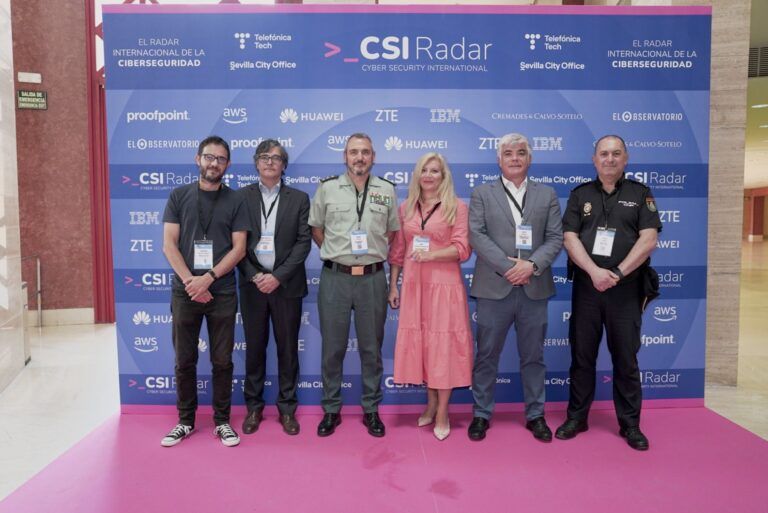- Juan Salom Clotet, Colonel of the Civil Guard: “In 2025 we will have 150,000 reports of Internet crimes in Spain”.
- Sergio de los Santos, Director of the Innovation and Laboratory Area of Telefónica Tech: “Awareness without training is useless”.
- Luis Hidalgo, Head of Cabinet, Institutional Relations and Events at INCIBE: “In 2022, INCIBE managed 118,000 cybersecurity incidents.”
- Juan Miguel Pulpillo, ITC coordinator: “60 % of companies have not yet defined security measures”.
The situation of cybersecurity and cyberattacks in Spain dominated the second day of ‘CSI Radar‘ in Seville. Luis Hidalgo, from INCIBE; Sergio de los Santos, from Telefónica Tech; Juan Miguel Pulpillo, from the Industrial Cybersecurity Center (CCI); Eloy Sanz, from the Digital Agency of Andalusia; Colonel Juan Salom Clotet, Head of the Cybersecurity Coordination Unit of the Civil Guard; and Inspector José Girón, Head of the Section of the Provincial Brigade of the Scientific Police of Seville of the National Police, have been the protagonists of this day.
“One in four crimes will be cybercrime by 2025.”
This second day has also counted with the presence of the State Security Corps and Members. On the part of the Civil Guard, Colonel Juan Salom Clotet, Head of the Cybersecurity Coordination Unit, has assured that “cybercrime is a very worrying issue”, while highlighting the “high rate of hidden crime on the Internet”, that is, crimes that are not reported but exist. He points out that “in 2025 we will have around 150,000 reported crimes on the Internet in Spain, which will mean one out of every four crimes“.
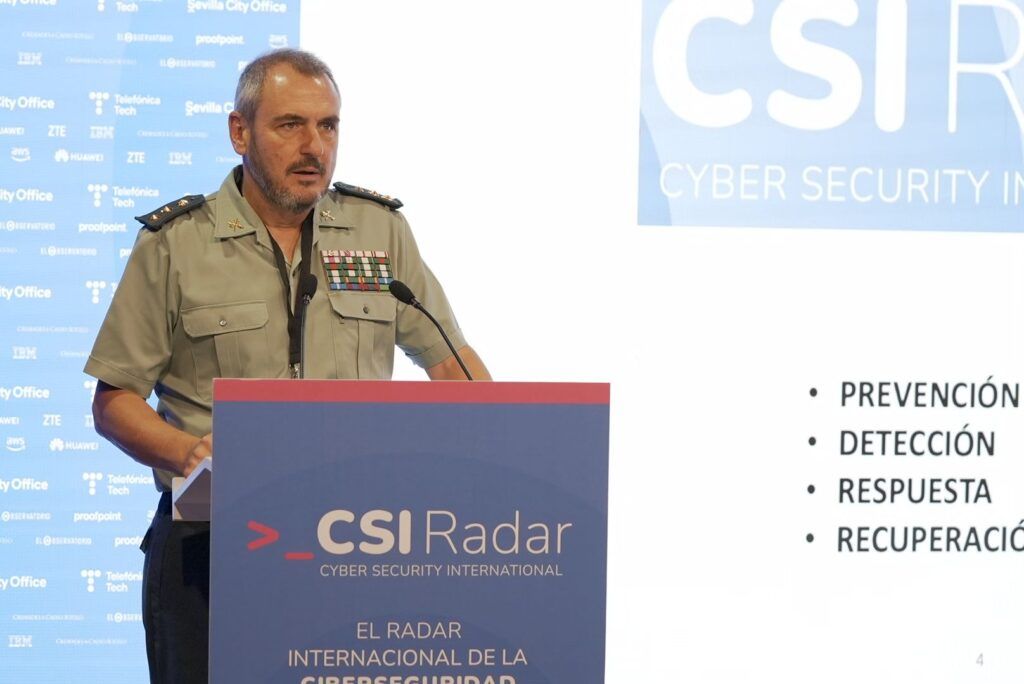
“Eighty-four percent of scams occur on the Internet, which means that one in five crimes are committed on the Internet,” detailed Salom, who affirms that “we must improve the training of civil guards’ capacity to combat these crimes. The only way to stop this growth is the culture of cybersecurity,” he said.
On the part of the National Police, Inspector José Girón, Head of the Seville Provincial Forensic Science Police Brigade, introduced us to the field of computer forensics, whose main task is “not to alter the evidence, recover deleted files, interpret the data collected, collect evidence and, finally, to have continuous training as a priority”.
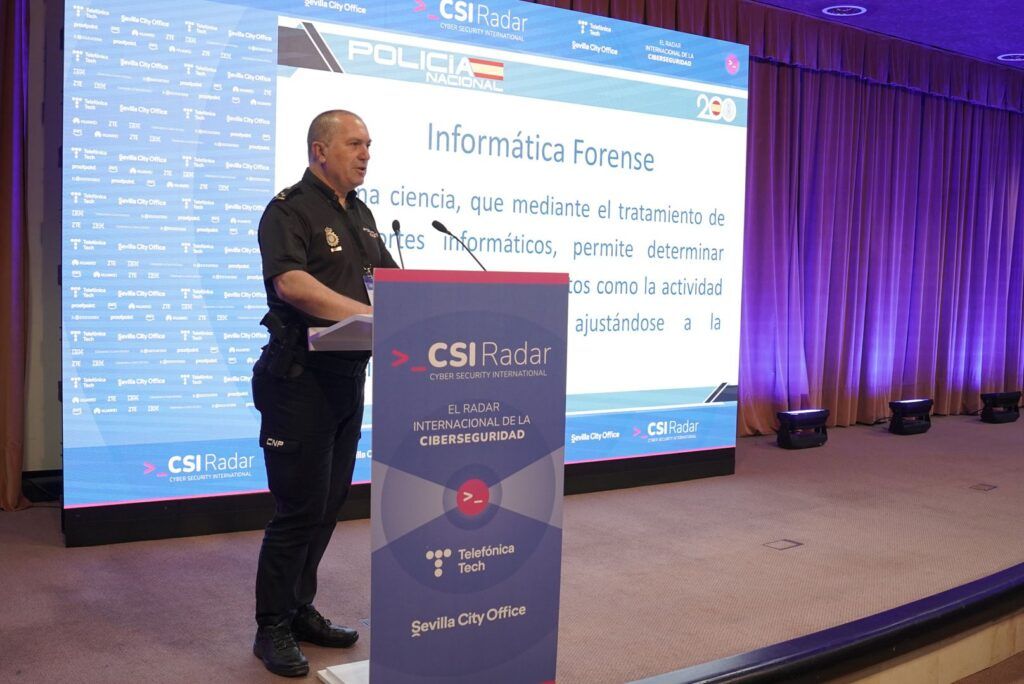
Girón explained some of the difficulties that a forensic police officer encounters in cybercrime, pointing out “arrogance” as the biggest problem: “Everything is so changeable that in minutes something that is in force at a given moment is no longer useful”, said the Police Inspector, who detailed “the size of the samples, hidden files or unknown software; as well as the concealment of information” as the other major drawbacks in the fight against cybercrime.
“In cybersecurity, awareness without training is useless”.
Faced with the technological future ahead of us, Sergio de los Santos, Director of the Innovation and Laboratory Area of Telefónica Tech, offered an optimistic point of view on cybersecurity stating that, despite “having advanced a great deal from an economic and technical point of view, awareness without user training is useless“. “I am against awareness if there is no information. If you are made aware but not taught, you don’t know what to do. The user needs to understand, otherwise you just put fear into them,” he assured.
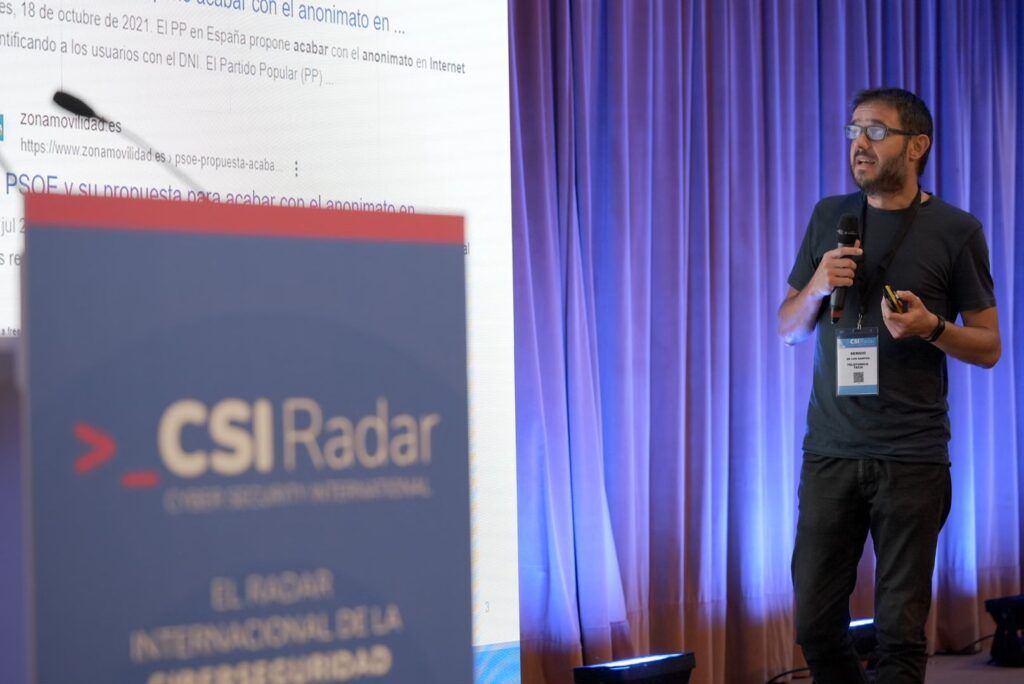
“We have all the tools on the table (economic, political, motivational), but we are probably missing the most important one: people,” said De los Santos.
“In 2022, INCIBE managed 118,000 cybersecurity incidents.”
Luis Hidalgo, Head of Cabinet, Institutional Relations and Events at the National Cybersecurity Institute (INCIBE), provided the tools to protect against cyberattacks: “Our mission is to foster digital trust; provide support and response to incidents; detect and promote talent in cybersecurity; boost the sector’s industry and innovation; and develop new technologies”, he explained about INCIBE’s mission, “but the responsibility is in the hands of the user”.
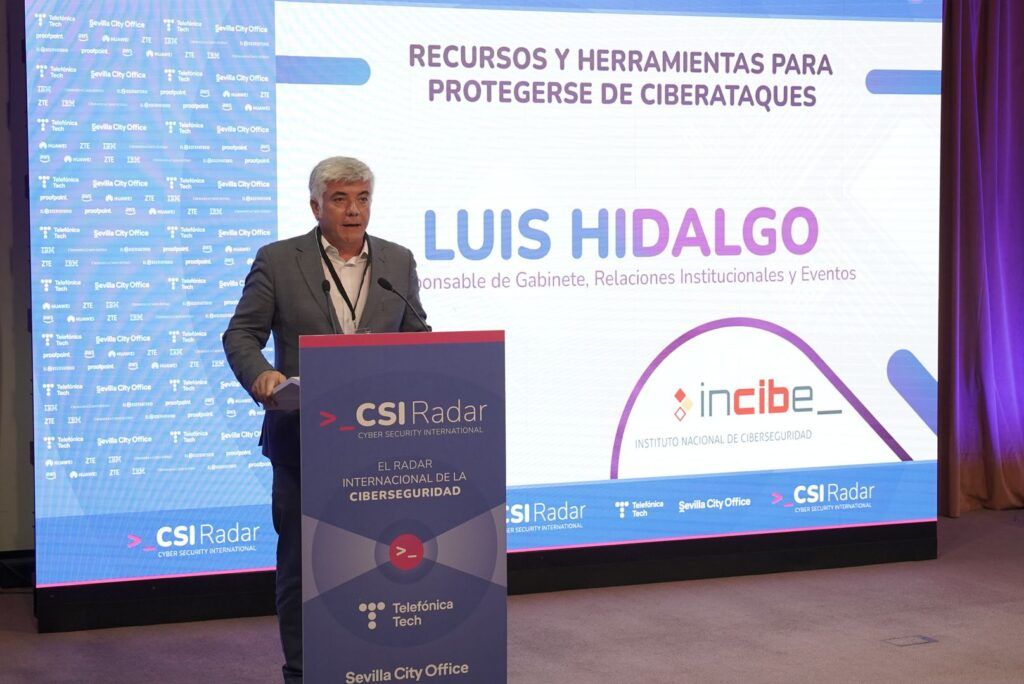
Hidalgo pointed out that “only last year in our country there were 118,000 cybersecurity incidents managed by INCIBE, mostly involving companies and individuals”.“The pandemic and technological development have led to a deepening of digitalization and a substantial increase in the risk surface,” said the head of INCIBE.
“60% of companies have not yet defined security measures”.
Juan Miguel Pulpillo, Coordinator of the Center for Industrial Cybersecurity (CCI), has faced the situation of industrial cybersecurity in Spain. “Although some risk and incident assessment is made in industry, between 40% and 60% of companies have not defined security measures. In other words, companies are aware of the risk, but do not take measures to avoid being attacked,” he explained.
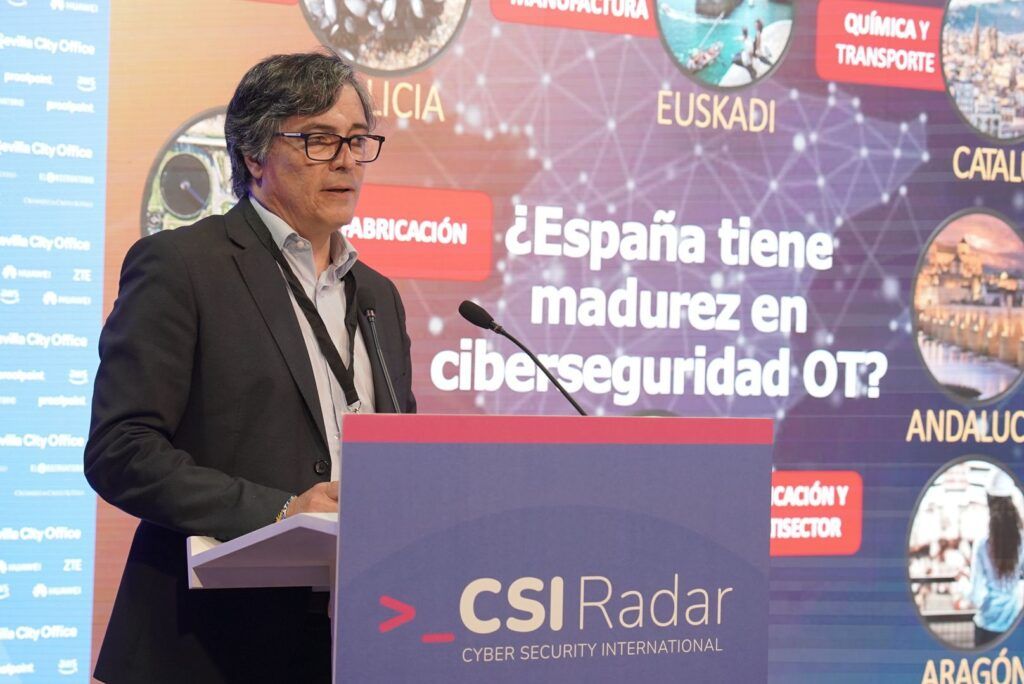
In an analysis divided into different industrial sectors, Pulpillo has indicated that “there is a large percentage of companies that are not doing the job well“, mainly due to “lack of training in cybersecurity at a technical level and at a senior management level, which translates, in a high risk of cyber-attacks”.
Eloy Sanz, Head of Security Service of the Andalusian Digital Agency, spoke about the Andalusian cybersecurity strategy, which is based on “prevention, detection and response” to cyberattacks. “AndaluciaCERT managed last year about 7,400 incidents and is working on awareness and training of 250,000 civil servants.”
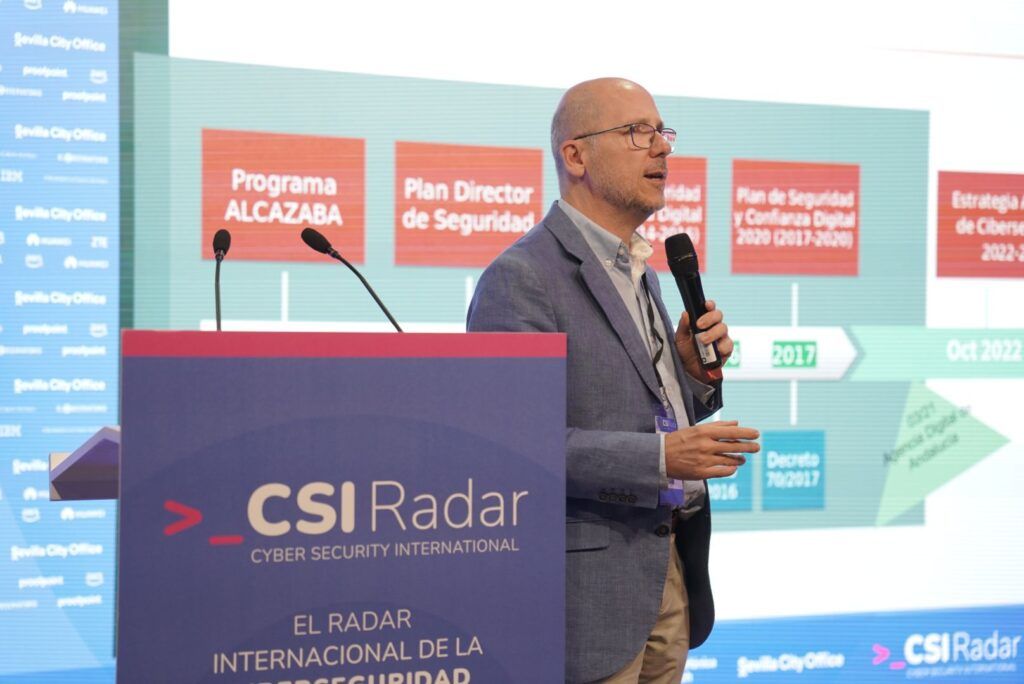
All the conferences of this day and those of the whole event can be followed through ‘The Observatory’, a platform launched by Medina Media Events. This first edition of ‘CSI Radar’ is promoted by Telefónica Tech, Sevilla City Office and FIBES, and has the support of AWS, Proofpoint, Huawei, ZTE, IBM, Cremades & Calvo-Sotelo and ‘El Observatorio’.
The ‘CSI Radar’ advances, tomorrow Wednesday, towards its first virtual day where the State and European Security Forces and Members and “the most vulnerable” have a lot to tell. The European Cybersecurity Agency, the Joint Cyberspace Command of the Ministry of Defense, the Civil Guard, the National Police and the Local Police will be protagonists. In addition, Carlos San Juan, promoter of the campaign “I’m old, not an idiot”, the judge Alfonso Peralta or Aitor Fernandez of AEVAC, will have a prominent place in this first online day that will begin at 10 am.

